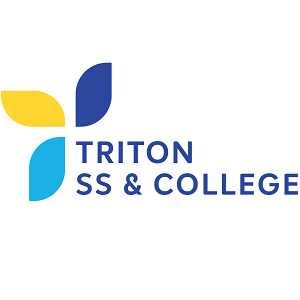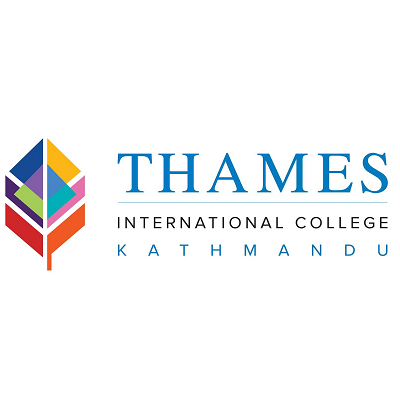Overview
Bachelor in Psychology (BPsych) at Orient College, Basundhara, Kathmandu
Bachelor in Psychology (BPsych) at Orient College is offered under Tribhuvan University (TU). The program sits within the college’s undergraduate portfolio alongside BBS and BASW. Students study psychological theories and methods while developing practical skills relevant to Nepali contexts such as schools, communities, health settings, NGOs, and entry-level organizational roles. The campus environment—separate academic blocks, library, labs, and seminar spaces—supports day-to-day study and small-group learning.
The course suits learners who want a structured, four-year pathway in psychology within Kathmandu. You engage with topics that explain behavior, thinking, emotions, and social processes, and you learn how evidence from research informs practice. The college highlights participatory learning, student presentations, and periodic seminars to link classroom theory with field realities.
Highlights
-
Affiliation: Tribhuvan University (FoHSS 4-year BA framework for Psychology).
-
Campus: Basundhara, Kathmandu; separate blocks for programs; library; computer and science labs; seminar spaces; cafeteria; MIS; CCTV classrooms.
-
Learning culture: Project work, individual/group presentations, periodic seminars and short trainings, formative/diagnostic feedback.
-
Scholarships: Merit-linked bands and special categories (seat-limited; conditions apply).
Curriculum Details
Tribhuvan University runs Psychology as a four-year bachelor’s program under the FoHSS BA structure. TU CDC has issued the Psychology (First–Fourth Year) curriculum, and FoHSS confirms the four-year BA framework from academic year 2076/077.
Core academic coverage (TU framework):
-
Foundations of Psychology – concepts, methods, and historical roots of the discipline.
-
Cognitive and Learning Processes – attention, memory, reasoning, problem solving, and learning principles.
-
Developmental Perspectives – growth and change across the lifespan, including adolescence.
-
Social Psychology – attitudes, groups, interpersonal influence, prosocial and antisocial behavior.
-
Abnormal Psychology and Mental Health – classification, symptoms, and introductory intervention approaches in the Nepal context.
-
Industrial/Organizational Psychology – motivation at work, leadership, selection basics, and well-being in organizations.
-
Counseling/Psychosocial Support – helping skills within ethical boundaries; referral awareness.
Orient College schedules classroom teaching with small-group tasks and presentations. Seminar cycles and short trainings are used to connect theory with practice, while labs and the library provide resources for assignments and self-study.
Note: Paper codes, internal/external weightings, and annual exam routines follow TU CDC/FoHSS documents and current notices. Students should cross-check the latest TU publications for paper-wise details in their intake year.
Objectives
-
Help you understand core theories and methods that explain behavior and mental processes.
-
Build your ability to read research, interpret findings, and use evidence in coursework and field tasks.
-
Provide basic helping skills suitable for undergraduate level, with clear limits and referral norms.
-
Encourage ethical awareness and documentation habits expected in social sciences under TU.
Scope
Graduates move into entry-level roles in student support units, schools, community programs, NGOs/INGOs, HR assistantships, and project coordination where behavioral insights matter. Many choose postgraduate study in Counseling Psychology, Clinical Psychology, Industrial/Organizational Psychology, or related areas before advanced practice. Undergraduate training lays the academic base; specialized practice typically requires a relevant master’s degree and compliance with national standards where applicable.
Learning Outcomes
By the end of the program, students are expected to:
-
Explain key psychological theories and compare their applications in Nepali settings.
-
Use basic statistical concepts and research logic when reading papers and planning small projects.
-
Demonstrate entry-level interviewing and communication skills suitable for supervised field tasks.
-
Produce short reports with proper referencing and ethical safeguards for participants.
Skill Development Modules
-
Academic reading & note-making: guided use of the college library and journals.
-
Presentation & discussion: individual and group presentations to build clarity and confidence.
-
Introductory counseling skills: listening, empathy, boundaries, and referral awareness within undergraduate limits.
-
Basic research practice: formulating questions, simple designs, ethics review at the classroom level, and report writing.
-
Digital literacy: use of internet-enabled labs for literature search and assignments.
Teaching Methodology
Orient College applies an interactive routine: classroom lectures for core concepts, small-group tasks, structured presentations, and periodic seminars that invite practitioners or senior faculty. Formative and diagnostic evaluation helps students track progress and act on feedback. Campus facilities—library, labs, and seminar spaces—support this routine across the year.
Classroom pattern at a glance
-
Short concept sessions followed by Q&A.
-
Case illustrations tied to Nepali contexts.
-
Group presentations with rubric-based feedback.
-
Seminar cycles and short trainings to link theory and field experience.
Admission Requirements
Admission follows TU FoHSS rules for the four-year BA framework. Applicants must have completed Grade 12 (+2) or equivalent from a recognized board and meet the program’s intake criteria as issued for the year. Seat availability, application windows, and any screening/counseling steps are published by the college each session.
Documents typically requested
-
Academic proof: Grade 12/+2 transcript, character certificate, and relevant IDs.
-
Photos & forms: recent photos and the college’s application form/prospectus entries.
-
Program counseling: subject mapping and time-table clarity during admission week.
Career Opportunities
-
Education & youth programs: school support roles, after-school clubs, basic counseling support under supervision.
-
Community & development: assistant roles in NGOs/INGOs focusing on psychosocial support, livelihoods, or awareness.
-
People & organizations: HR assistant, training coordination, entry-level survey/research roles.
-
Further study: MA/MPhil/PhD pathways through FoHSS departments and recognized colleges for advanced practice and specialization.
Scholarships and Financial Aid
The college publishes merit-linked scholarship bands for higher secondary and A-Level intakes and lists special categories such as district/school toppers, students with disabilities, ECA performers, conflict-affected groups, and children of martyrs. Undergraduate scholarship opportunities are updated in annual notices; students should confirm availability and conditions for the BPsych intake year.
Key points to verify each year
-
Seat-linked quotas and continuation rules.
-
Required grade bands and any entrance/counseling steps.
-
Document deadlines for claims under special categories.
Why Choose This Course (BPsych at Orient College)?
-
TU affiliation and BA framework: recognized route for psychology at undergraduate level.
-
Supportive study environment: separate blocks, library, computer/science labs with internet, seminar spaces, and a campus MIS for records.
-
Active learning culture: presentations, project work, seminar cycles, and formative/diagnostic feedback.
-
Community relevance: topics and tasks reflect Nepali social, educational, and organizational contexts, building practical understanding.
Conclusion
BPsych at Orient College offers a TU-affiliated path for learners who want a clear start in psychology within Kathmandu. The TU CDC curriculum sets the academic base for four years, while the college’s facilities and teaching routine support steady progress through presentations, seminars, and guided assignments. Applicants should confirm intake-year notices for seats, schedules, and any scholarship provisions before applying.
FAQ
1) What is the official affiliation for BPsych at Orient College?
The program runs under Tribhuvan University’s four-year BA framework in Psychology through FoHSS.
2) Where can I verify the TU curriculum?
Refer to TU CDC’s Psychology (First–Fourth Year) curriculum and FoHSS’s BA pages for the four-year framework.
3) Does the college provide labs and a library for psychology students?
Yes. The campus lists a fully stocked library, internet-enabled computer/science labs, seminar spaces, and a campus MIS.
4) How does the college assess students during the year?
The college notes formative and diagnostic evaluation alongside lectures, projects, and presentations.
5) What scholarships are available?
Merit-linked bands and special categories are published each year. Students should review current notices for seat counts and conditions.




















